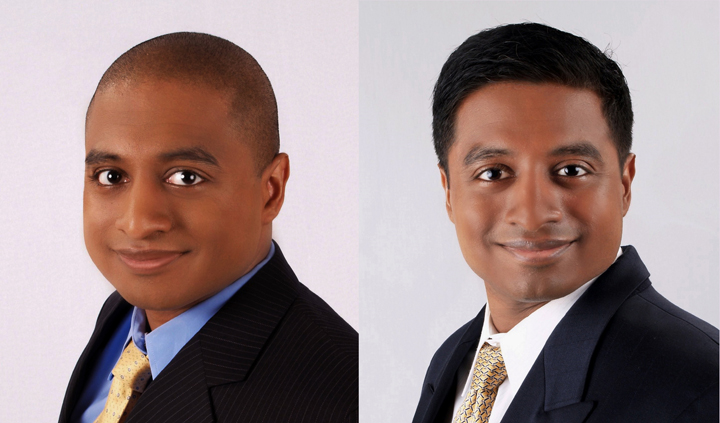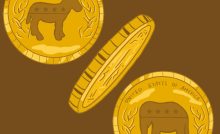Q&A with Vijay Chokal-Ingam: Affirmative action is racist


Courtesy Vijay Chokal-Ingam
Vijay Chokal-Ingam may not be as well-known as his famous sister, actress and comedian Mindy Kaling, but he’s generated a bit of chatter about his book, “Almost Black: The True Story of How I Got into Medical School by Pretending to be Black.”
The book details Chokal-Ingam’s experiences as an Indian-American who pretended to be a black man named Jojo Chokal-Ingam in order to benefit from affirmative action programs at prestigious medical schools, including Pitt’s School of Medicine, where he was eventually rejected. Chokal-Ingam includes proof of letters he received from Pitt admissions officers on his website. School of Medicine administrators declined to confirm the documents or comment on Chokal-Ingam’s admissions process.
While applying to medical schools in 1998, Chokal-Ingam claimed to be a member of the Organization of Black Students and checked the box on applications self-identifying his race as black. He also shaved his head and trimmed his eyelashes to play the part of a young, aspiring black doctor. With a 3.1 GPA and 31 MCAT score, he managed to interview at 11 prestigious medical schools.
Chokal-Ingam’s controversial actions stem from his belief that affirmative action policies — which favor members of disadvantaged groups, including people of color, primarily in employment and school acceptance — are racist. This election, Chokal-Ingam is adamantly supporting Donald Trump in hopes that the Supreme Court justices he appoints will overturn affirmative action.
As part of her research for a column on Chokal-Ingam’s book, The Pitt News’ writer Amber Montgomery chatted with the author about his motivations.
Additionally, you can find out her take on the interview here.
Amber Montgomery: “So let’s start at the beginning, tell me how you got the idea to ‘hack’ affirmative action to get into medical school.”
Vijay Chokal-Ingam: “Well, back in college, all of my Indian-American pre-medical friends got crushed. Unless they were like a Rhodes Scholar, they got rejected from medical school. So I started to freak out about my own chances of admission … I studied statistics and economics at UChicago, so I could look at the published statistical data [from] the American Association of Medical Colleges and find my own chances of admission.
What I figured out is that as an Asian-American, I was pretty much screwed — there was almost no chance that I was going to get in. But, ironically, as a black student, I had a pretty high chance of admission. According to statistical data from the American Association of Medical Colleges, if I pulled the same scam last year, as an Asian-American with a 3.1 GPA and 31 MCAT score, I had about 18 percent chance of admission. On the other hand, a black student with the same grades and test scores has a 76 percent chance. So, by changing my race, I could dramatically improve my chance of admission. So I came up with the scam of shaving my head, trimming my eyelashes, joining an organization of black students and applying as an African-American. Suddenly, I became a real contender at top schools like Yale and the University of Pittsburgh.
My friends all thought it was just a joke until I got waitlisted by the Washington University School of Medicine and the University of Pennsylvania Perelman School of Medicine, which were then ranked the third and fourth best medical schools in the country, despite the fact that I had a pretty pitiful GPA. You’d be amazed how much difference checking a box on an application form can make on your chances of admission.”
AM: “So we’ll get more into that in a little bit, but first, I’m wondering about the timing of the book because this all went down in the late 1990s, right? 1998 and 1999 were when you were doing the interviews?”
VC: “Yep. I decided to come out with this book now for a very important reason. I believe that the election of 2016 is a national referendum on the future of affirmative action. I think the people have a right to know what affirmative action is and how it impacts their chances of admission to college or graduate school.
And, fortunately, there is someone with the courage to fight affirmative action racism — there is someone with the courage to expose the hypocrisy of people like President Barack Obama and Sen. Elizabeth Warren, who supported Harvard’s racist affirmative action policies. That man is Donald Trump. I believe that Donald Trump will end affirmative action like Lincoln ended slavery, and his commitment to appointing justices in the mold of [Antonin] Scalia, who was a strong affirmative action opponent, as he said in the [second presidential debate], reinforces that commitment.”
AM: “In general, what did you mean to illustrate about racism and affirmative action in this country by sharing your experience in ‘Almost Black?’”
VC: “First of all, I didn’t have a plan. I was always amazed by the differences in the ways that people treated me when I was black compared to when I was Indian-American. As an Indian-American, I walked into a store a thousand times and never had a problem. Suddenly, I walk into the same store and get accused of shoplifting. I remember driving down Lake Shore Drive in Chicago, which is what I did a thousand times before, and suddenly getting pulled over by cops and being asked questions like, “How did you get such an expensive car?” That never happened to me back when I was Indian-American, and I kind of realized that there are two speed limits in America: one if you’re black, one for everybody else. And if you’re not black, you can go about five to 10 miles faster.
So there is a very serious problem with racism in this country and we need to address it. I don’t diminish the racism faced by African-Americans, I simply think that one form of racism, you know, racial discrimination by police and others, is not justification for more racism in the form of affirmative action.”
AM: “So that’s really interesting that you found that people treated you differently when you were black. Did you notice any of that specifically during the application process or in the interviews?”
VC: “I think, ultimately, I got rejected from the University of Pittsburgh, and I think that’s because what I learned was that the medical schools have, they’ll usually have a minority person interview you, like a real black person interview you, and that person is kind of like a human bulls*** detector … and that happened at a couple other schools too. So it wasn’t smooth sailing.”
Editor’s note
Chokal-Ingam can confirm he had interviews at Pitt with Ellen Frank, professor emeritus of psychiatry, and Paula Davis, assistant vice chancellor for health sciences diversity. But both women said that after decades of interviewing potential medical school candidates, neither were able to recall Jojo’s interview specifically.
Pitt’s School of Medicine Office of Admissions and Financial Aid also denied to release any information surrounding his rejection, his status as an affirmative action candidate or whether his application may have been thrown out because they suspected he lied about his race.
The Pitt News could not independently verify this information, because the School of Medicine declined to comment.
AM: “So, to go off of that, do your grievances with affirmative action have more to do with the policy as a whole or specifically with how it treats Asian-Americans?”
VC: “Racism is racism, whether you call it affirmative action or apartheid or whatever. I think you should read the end of my book to see, racism is racism. We shouldn’t discriminate against people based on their race. On the other hand … I was very fortunate, I grew up in an affluent family, I grew up in one of the wealthiest towns in Massachusetts. My mother was a doctor, I never got any financial aid at the University of Chicago and somehow schools … were willing to consider me one of their affirmative action candidates … There are people who are significantly disadvantaged in this country, and affirmative action that is based on socioeconomic status, that’s fine. If you want to give advantage to people who have been discriminated against, that’s great. However, I think it is the ultimate form of racism to assume that everyone who is black or Hispanic is disadvantaged.
It’s the ultimate form of racism to assume that everyone who is white or Asian-American is rich, because that’s just not true.”
Recent Posts
Marquan Pope: The ultimate shark
One of the most remarkable things about sharks is that an injury doesn’t deter them.…
Who Asked? // Do we really get a summer vacation?
This installment of Who Asked? by staff writer Brynn Murawski mourns the seemingly impossible perfect…
Notes From an Average Girl // Notes from my junior year
In this edition of Notes From an Average Girl, senior staff writer Madeline Milchman reflects…
Meaning at the Movies // The Power of the Movie Theater
In this edition of “Meaning at the Movies,” staff writer Lauren Deaton discusses her love…
EMBRACE sponsors Black Maternal Health Wellness week
Because Black women’s maternal health is not institutionally prioritized, Pitt’s EMBRACE sponsored a Black Maternal…
Local ‘Standing Wave’ coffee truck energizes the Pitt food scene
The small business coffee truck “Standing Wave” has become a beloved new coffee spot on…


